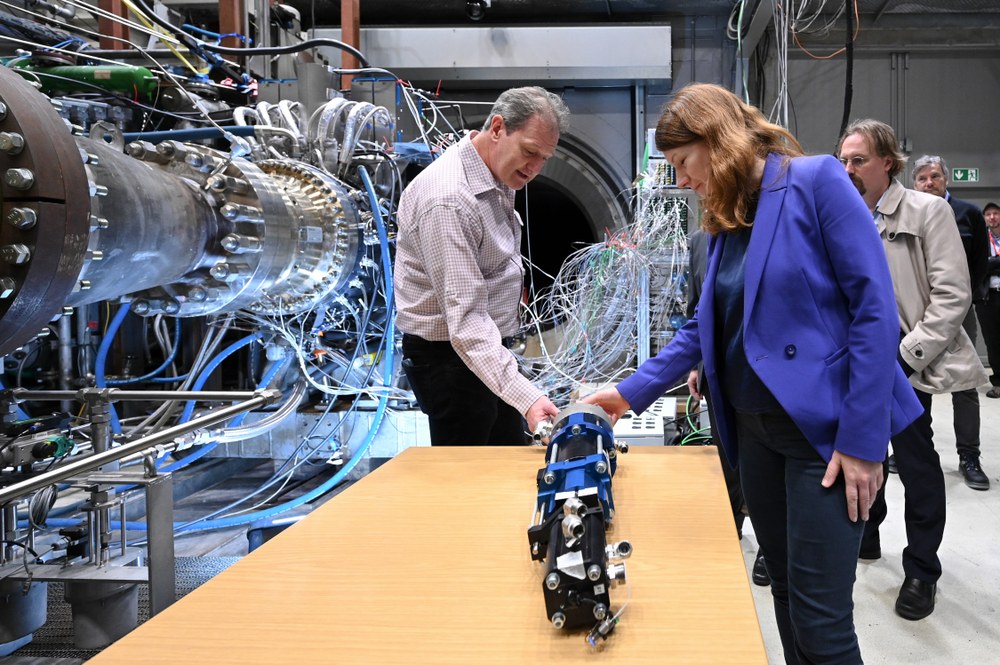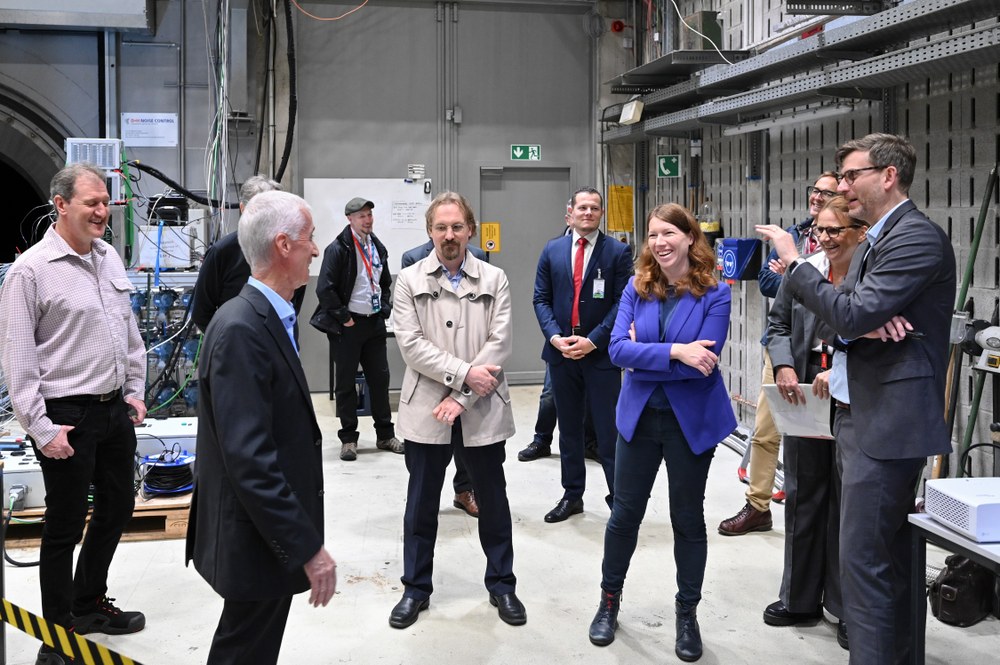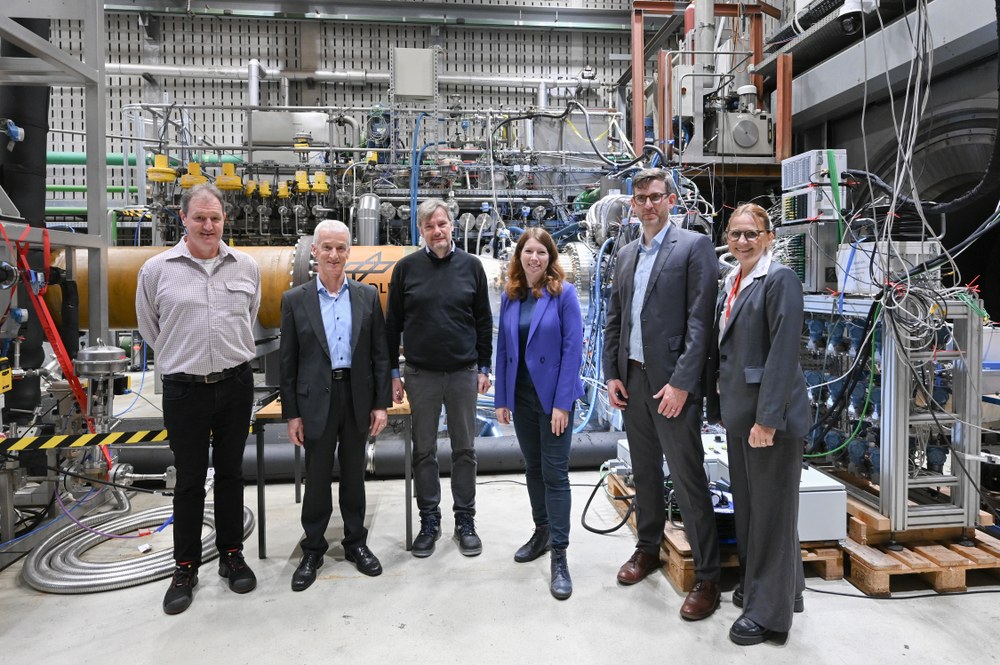Dr Anna Christmann gains insights into progress in hydrogen propulsion



During a visit to our institute by Dr Anna Christmann, Federal Government Coordinator of German Aerospace Policy, we presented the latest progress in the development of hydrogen propulsion systems together with our partner GE Aerospace.
During a visit to our institute by Dr Anna Christmann, Federal Government Coordinator of German Aerospace Policy, we presented the latest progress in the development of hydrogen propulsion systems together with our partner GE Aerospace.
Recent tests at the DLR Institute of Propulsion Technology in Cologne are an important part of the international CFM RISE demonstration programme. The RISE program is developing cutting-edge technologies, including the adaptation of gas turbines to alternative fuels and innovative engine architectures such as the Open Fan aimed at creating future low-emission and efficient aircraft engines. DLR and GE Aerospace investigated a hydrogen powered sector burner under high-pressure conditions on a test rig at our institute. During the tour of the test rig, Prof Florian Herbst, Director of the Institute of Propulsion Technology, emphasised the importance of conducting these tests under real conditions. "The combination of hydrogen and gas turbines is one of the greatest technical challenges due to the extreme power density and high flame speed. At the same time, the combustion technology must meet the highest safety requirements.
"This is why a deep understanding of the combustion process is necessary, which can be achieved with the help of DLR's special test benches and our measurement technology," continues Herbst.
To study the combustion process in detail, Dr Guido Stockhausen and his team at our institute have developed an endoscopic probe system. This allows the combustion reaction zones to be optically recorded without affecting the flow in the combustion chamber. This DLR measurement technology was used by GE Aerospace in the measurement campaign and is providing valuable insights for the development of low-emission combustion chambers. The introduction of this technology is an important step forward in the cooperation between research and the aerospace industry. It enables complex and expensive high-pressure testing to be carried out more efficiently, accelerating the development of future hydrogen engines. This brings us a significant step closer to bringing hydrogen-powered commercial aircraft engines to market and reducing aviation's carbon footprint.
Revolutionary Innovation for Sustainable Engines (RISE)
RISE is a program of CFM International, a 50-50 joint company between GE Aerospace and Safran Aircraft Engines.
Tests were supported by the German Federal Aviation Research Program (LuFo) and the Clean Aviation Joint Undertaking. Engineers are advancing hydrogen combustion technologies under the Clean Aviation HYDEA project in a consortium led by Avio Aero, a GE Aerospace business, along with other GE Aerospace sites in Europe, Safran Aircraft Engines, Airbus, and other partners from industry and academia.
Contact
Annabel Brückmann
